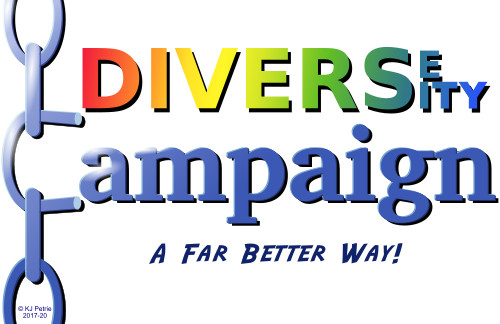Opinion
16th March 2018
The Politics of Hatred
Yesterday’s news contained two items which struck me as strange. The first was the claim by a police force that, despite online claims, they had no evidence that a murder victim had been killed as a result of hatred. The second was a debate in the House of Lords about “hate crime” which, apparently, has a legal definition involving the victim’s membership of a particular listed group.
It struck me that the words hate and hatred are now being used in a rather peculiar way, only vaguely attached to their real meaning. For what is being intended by this usage is not hatred, but political motivation of some sort.
I would think it is self-evident that someone who is targeted by a criminal is to some extent the victim of hatred, or at least malice or disregard for their welfare. The idea that it is only hatred if the victim is on a pre-determined list of protected categories is clearly absurd. Hatred is hatred, whatever the motive for it, irrespective of whom the target is. I think most people would agree that, apart from certain linguistic constructs like hatred of evil or hatred of hatred, hatred is a bad thing.
However, this new politicised meaning of the term to indicate not an undesirable emotion but political opinions of which the speaker disapproves is to load political opinions with a moral force they don’t themselves deserve. It dismisses all who disagree with the speaker as disingenuous and expresses not just disapproval, but strong condemnation. They can be dismissed as “haters” or “hateful” and all engagement with them thus avoided. In fact, anyone who dares to engage with them can be tarred with the same brush and similarly dismissed.
And that leads me to ask, who is doing the hating here? Is it the person whose views are disregarded as unacceptable, or the one dismissing them?
Our politics now are so polarised many people fear to become involved at all. It really isn’t surprising if the language of politics is now hatred rather than discussion. If politics is conducted by condemnation and misrepresentation, by words designed to marginalise and exclude, how can social cohesion be maintained? People will naturally be driven into ghettos of like-minded individuals, from which they will hate everyone else, and then what? How long before the different groups start to fight, not just with words, but with sticks and stones and bottles and knives? It’s a terrifying prospect. It needs to be avoided before it gets serious.
The politics of hatred is dangerous. It is dangerous to us all, and we need to do whatever is necessary to stop it. Hatred is a bad thing, and politics which allows hatred to flourish by redefining it to exclude the action itself, and sets up people to hate in the name of outlawing that redefined concept must be resisted before it tears us all apart.
We need a politics of love and respect. We need to resist hatred, irrespective of the targets or perpetrators.

